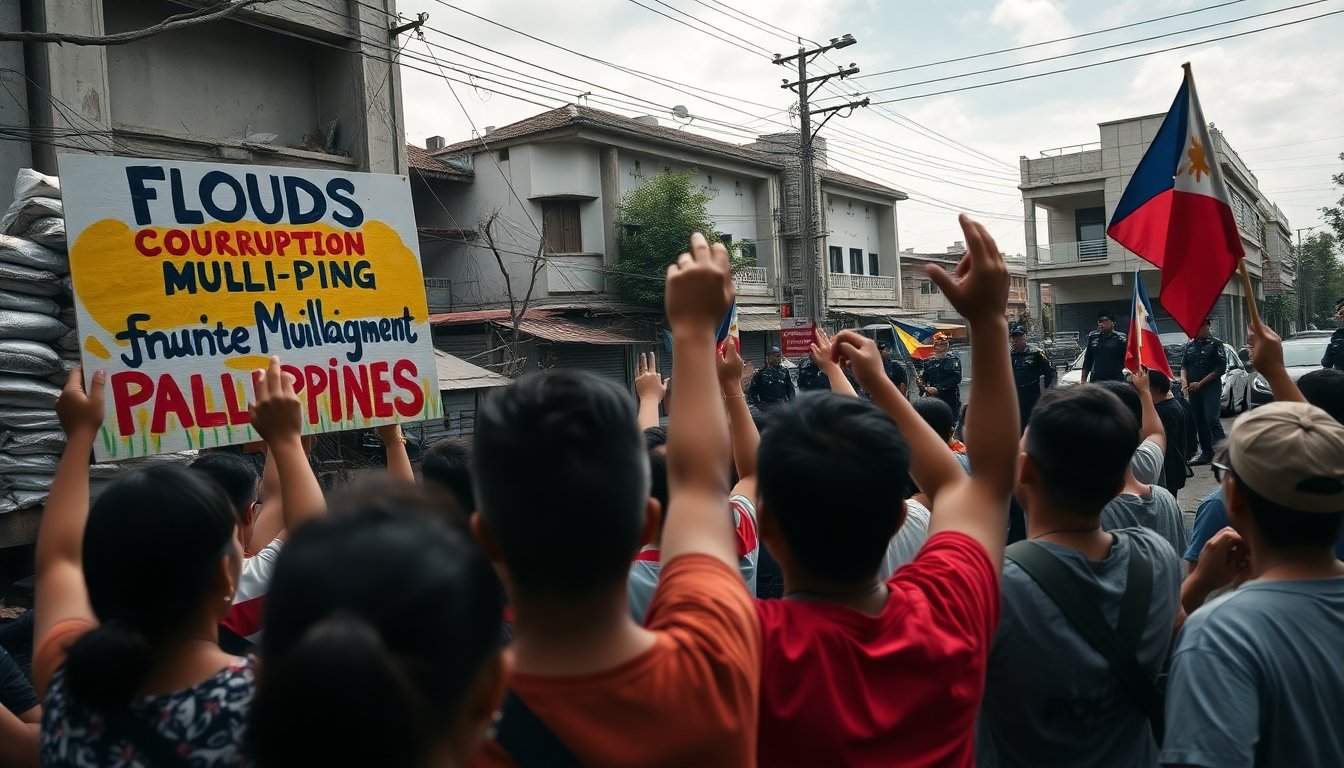Table of Contents
In recent weeks, a significant wave of protests has emerged in the Philippines, driven by public frustration over corruption allegations and the government’s inadequate response to devastating floods. As citizens take to the streets, their grievances stem from a growing mistrust of officials who have mismanaged resources intended for flood control, resulting in substantial loss and suffering.
Protests Erupt Over Flood Damage and Corruption
The protests intensified following a distressing series of floods that struck Metro Manila and surrounding provinces in July, causing widespread destruction and displacing countless families. The government had allocated over 545 billion pesos (approximately $9.4 billion) for flood control projects since 2022. Public frustration peaked when many of these initiatives were found to be incomplete or poorly executed.
Demonstrators initially gathered outside the Department of Public Works and Highways, expressing their outrage by throwing waste-filled balloons and rotten fruit at the building. Their anger was exacerbated by reports of corruption uncovered in a government investigation. This investigation revealed that only 15 of the 2,409 registered contractors had secured contracts worth 100 billion pesos, while the remaining funds were inadequately distributed among less fortunate contractors.
Government Accountability Under Scrutiny
The investigation exposed alarming discrepancies, indicating that many contracts were awarded for nonexistent roads and canals. This gross mismanagement has led to a crisis of confidence in government institutions, prompting citizens to demand accountability and transparency in the allocation and utilization of public funds.
As demonstrators marched to the House of Representatives, they faced police resistance but continued their protest, defacing the building’s facade as a symbol of their discontent. The protests have gained momentum, with an online movement encouraging citizens to unite, hoping to replicate the recent unrest seen in Indonesia, where public outcry has resulted in significant political changes.
Public Sentiment and Future Implications
The growing dissatisfaction among citizens reflects a broader trend of demanding more from their government. As the protests persist, they serve as a stark reminder of the urgent need for systemic change in the Philippines. The current climate of unrest presents a significant challenge for lawmakers, who must address the underlying issues of corruption and inadequate infrastructure development.
Moving forward, the government faces a critical juncture. A failure to respond effectively to these protests could lead to further instability and unrest. It is essential that officials not only acknowledge the public’s concerns but also take concrete steps to rectify the shortcomings in flood management and overall governance.


